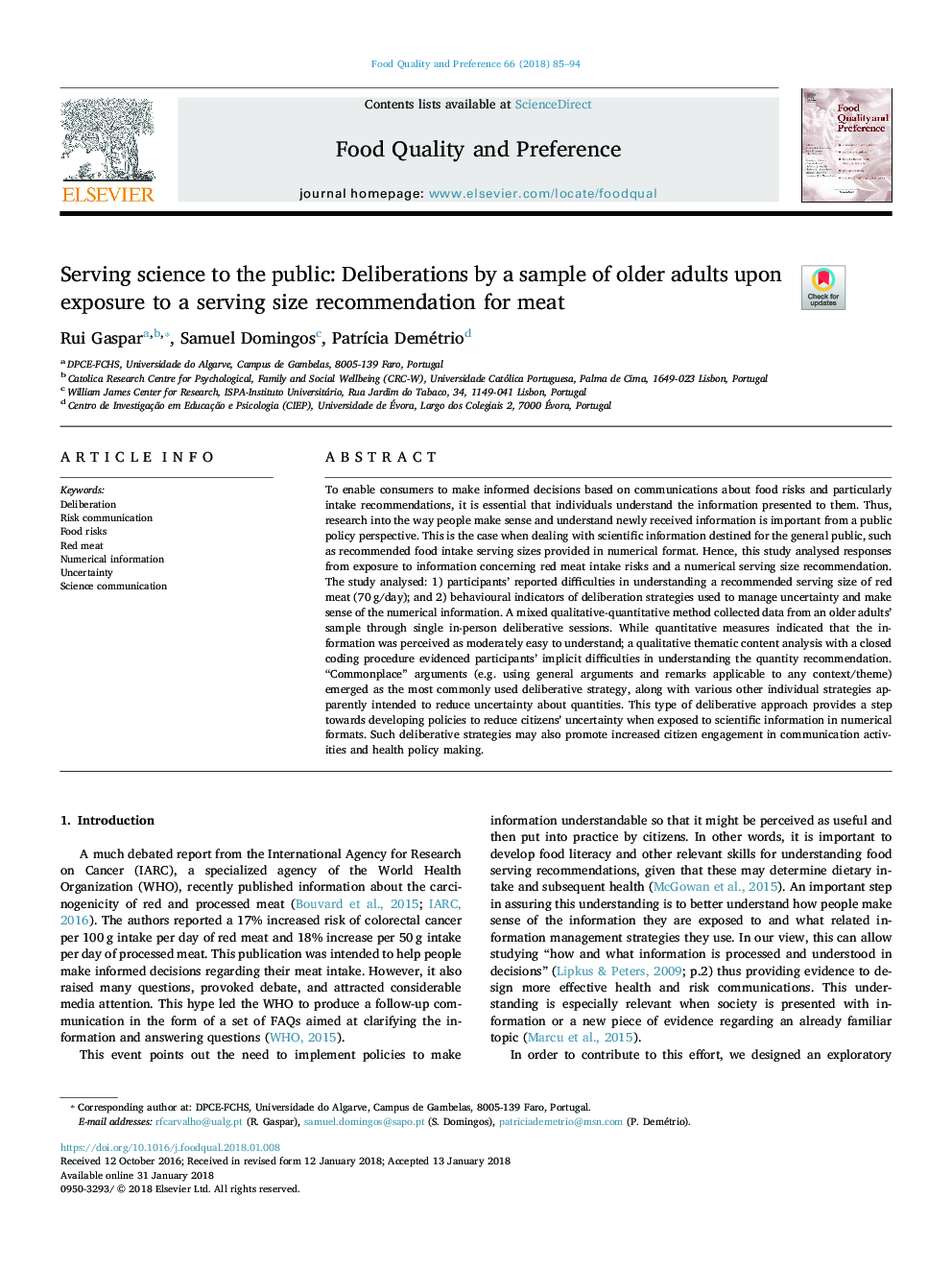| کد مقاله | کد نشریه | سال انتشار | مقاله انگلیسی | نسخه تمام متن |
|---|---|---|---|---|
| 8838520 | 1613134 | 2018 | 10 صفحه PDF | دانلود رایگان |
عنوان انگلیسی مقاله ISI
Serving science to the public: Deliberations by a sample of older adults upon exposure to a serving size recommendation for meat
ترجمه فارسی عنوان
خدمت علم به عموم: بحث و گفتگو توسط نمونه ای از افراد مسن در معرض توصیه های اندازه خدمت برای گوشت
دانلود مقاله + سفارش ترجمه
دانلود مقاله ISI انگلیسی
رایگان برای ایرانیان
کلمات کلیدی
مذاکره، ارتباط ریسک، خطرات غذایی، گوشت قرمز، اطلاعات عددی، عدم قطعیت، ارتباطات علمی،
موضوعات مرتبط
علوم زیستی و بیوفناوری
علوم کشاورزی و بیولوژیک
دانش تغذیه
چکیده انگلیسی
To enable consumers to make informed decisions based on communications about food risks and particularly intake recommendations, it is essential that individuals understand the information presented to them. Thus, research into the way people make sense and understand newly received information is important from a public policy perspective. This is the case when dealing with scientific information destined for the general public, such as recommended food intake serving sizes provided in numerical format. Hence, this study analysed responses from exposure to information concerning red meat intake risks and a numerical serving size recommendation. The study analysed: 1) participants' reported difficulties in understanding a recommended serving size of red meat (70â¯g/day); and 2) behavioural indicators of deliberation strategies used to manage uncertainty and make sense of the numerical information. A mixed qualitative-quantitative method collected data from an older adults' sample through single in-person deliberative sessions. While quantitative measures indicated that the information was perceived as moderately easy to understand; a qualitative thematic content analysis with a closed coding procedure evidenced participants' implicit difficulties in understanding the quantity recommendation. “Commonplace” arguments (e.g. using general arguments and remarks applicable to any context/theme) emerged as the most commonly used deliberative strategy, along with various other individual strategies apparently intended to reduce uncertainty about quantities. This type of deliberative approach provides a step towards developing policies to reduce citizens' uncertainty when exposed to scientific information in numerical formats. Such deliberative strategies may also promote increased citizen engagement in communication activities and health policy making.
ناشر
Database: Elsevier - ScienceDirect (ساینس دایرکت)
Journal: Food Quality and Preference - Volume 66, June 2018, Pages 85-94
Journal: Food Quality and Preference - Volume 66, June 2018, Pages 85-94
نویسندگان
Rui Gaspar, Samuel Domingos, PatrÃcia Demétrio,
